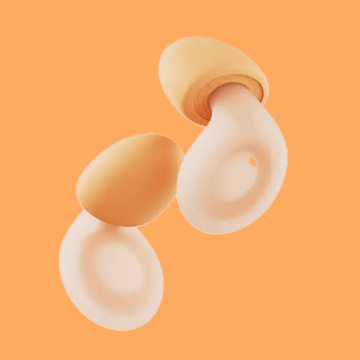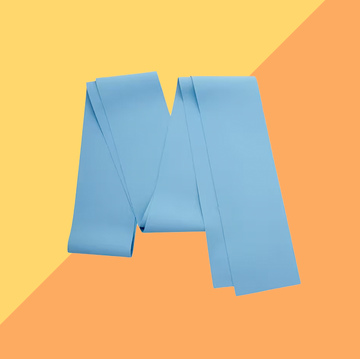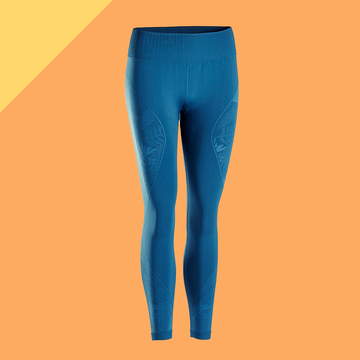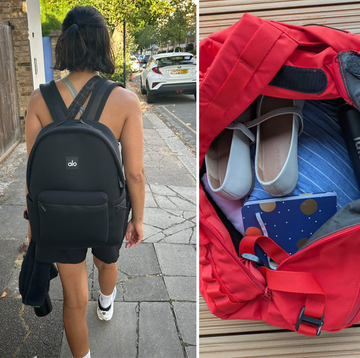We earn a commission for products purchased through some links in this article.
The best matcha powders to help boost energy and increase concentration
Taste Approved by our expert panel

Following in the footsteps of goji berries, chia seeds and kale, matcha is *the* superfood of the moment. The vibrant green powder has been used for centuries in East Asia, but over the past few years, it has soared in popularity around the world, with the global matcha market projected to reach a cool $6.4 billion by 2031. So we've been busy sipping and scouring ingredients lists to find the best matcha powders on the market.
Step into any high street coffee shop and chances are, you’ll find matcha lattes and iced matchas on the menu alongside your regular flat whites and americanos. Thanks to its attractive green hue, it's probably all over your Instagram feed too, with people turning to the green stuff for a crash-free energy boost.
Thinking about swapping your morning cuppa for a frothy matcha? Read on for everything you need to know about the food and drink trend du jour, plus the best matcha powders on the market right now.
Focusing on your health and wellness in 2025? We’ve tested the best greens powders, the best mushroom coffees and the best protein powders, too.
The best matcha powders for 2025
What is matcha?
"Matcha is ground-up green tea leaves,” explains Dr Federica Amati, head of nutrition at ZOE. “Farmers grow the plants in the shade, which gives the powder its distinct bitter taste and bright green colour.”
“Because growing in shady conditions is stressful for the plant, it produces higher levels of protective plant compounds (phytonutrients or phytochemicals), some of which may support health,” she adds.
Traditionally, matcha is whisked – using a matcha bowl and bamboo whisk – with hot water to a frothy consistency for sipping, but increasingly it's being stirred into lattes, smoothies, pancakes and desserts (matcha panna cotta and sesame brittle, anyone?)
It’s worth noting that matcha does contain caffeine, although it offers a slightly gentler hit than coffee. A standard 227ml cup of coffee contains anywhere from 80-100mg of caffeine, whereas the average cup of matcha provides around 70mg of caffeine.
What are the benefits of matcha?
According to Dr Amati, scientific studies show that matcha may have anti-inflammatory and antioxidant properties thanks to the high level of bioactive compounds. These include catechins, caffeine, chlorophyll and L-theanine.
It can also provide a smoother caffeine experience than coffee and could even help improve cognitive function. This is because the combination of caffeine and L-theanine can help improve mental focus and alertness, without a dreaded energy crash. L-theanine has also been shown to help reduce feeling of stress and anxiety and aid relaxation.
Dr Amati points out, however, that much of the evidence comes from laboratory studies, so we can’t say for sure if the compounds in matcha have the same health-boosting effects when consumed. More research is needed before we can make any conclusions.
How to know which matcha powder to buy
There are a few things to think about when it comes to choosing the best matcha green tea powder.
“The colour should be bright green. If it’s duller or more yellow, it’s likely to be of poor quality.” explains Dr Amati. “You should also check the ingredients list; some products use matcha as a health halo, but some can be high in sugar and additives like emulsifiers.”
It’s also worth considering the grade – is it ceremonial, premium or culinary? Ceremonial grade matcha, which is made from younger tea leaves, is generally considered to be higher quality and can be enjoyed with hot water alone.
Culinary grade matcha, on the other hand, is made from lower grade tea leaves and is best for lattes, shakes and baking. It tends to be more affordable than the ceremonial grade variety.
Then there’s premium grade matcha, which sits between the two and can be used for drinking and baking.
How we test
Our Good Housekeeping Institute panel – made up of expert food testers and avid matcha drinkers – put 10 powders from leading brands through their paces, judging them on consistency, flavour and colour (the bolder, the better).
Each powder was prepared using the recommended amount of matcha and packet instructions were followed precisely.
Once testing was complete, we collated all the feedback and awarded final scores. Whether you’re a dedicated matcha fan or a total newbie, these are our favourite matchas on the market.
Priyankaa is our sleep and wellness expert, specialising in expert-tested reviews and roundups on the latest health and fitness products. From walking boots to running machines, Priyankaa has written about hundreds of products and is passionate about providing in-depth, unbiased reviews. Plus, as an avid runner and gymgoer, she knows exactly what to look for when finding the right gymwear, fitness tracker or earphones.
Priyankaa has an MA in Magazine Journalism from Cardiff University and over five years’ experience in health and fitness journalism. Priyankaa has written for Stylist’s Strong Women Training Club, where she regularly wrote about diversity in the fitness industry, nutrition tips, training advice and her experience completing various fitness challenges. She has also written for a variety of publications including Business Insider, Glamour, Bustle, Metro, HuffPost UK, gal-dem and more. Outside of work, Priyankaa can usually be found trying out a new gym class, seeking out London's best eats or watching a Spanish TV show in a bid to keep up her language skills.
Callum is our Food and Drink Testing Manager and has been part of the world of professional catering for 10 years, from cheffing to food manufacturing. While working in manufacturing he specialised in bespoke product and menu development for several start-ups and well-known brands such as Wrap It Up! and HOP Vietnamese. He holds the WSET Level 2 in wine, a Level 3 in spirits and has a particular interest in agave spirits.
Georgia has been part of the hospitality industry for the last nine years. Her starting point was the world-renowned Le Cordon Bleu culinary school where she gained a Diplôme de Pâtisserie. She has worked at a number of well-known restaurants and bakeries including The Club at the Ivy and Ottolenghi, Notting Hill where she was the head pastry chef. Most recently, Georgia worked at The Clink Bakery inside HMP Brixton, which aims to reduce reoffending through teaching. She is an expert in all things baked goods and holds a WSET level 2 in wine.
Joanna Anastasiou is our Food and Drinks Tester, and has completed certifications in Sensory Foundation and WSET Wine Level 2 training. Prior to this she studied geography with conservation biology at the University of Exeter and trained at Ballymaloe Cookery School in Ireland. Through this she has developed a passion for sustainability within the food and agricultural sectors. Joanna also volunteers in kitchens with FoodCycle, as well as on multiple wildlife conservation projects, where she formed a particular love for bees!


Best multivitamin supplements for women, tested

The best earplugs for sleeping, tried and tested

This is the only pair of leggings you'll ever need

The best waterproof trousers for women
















